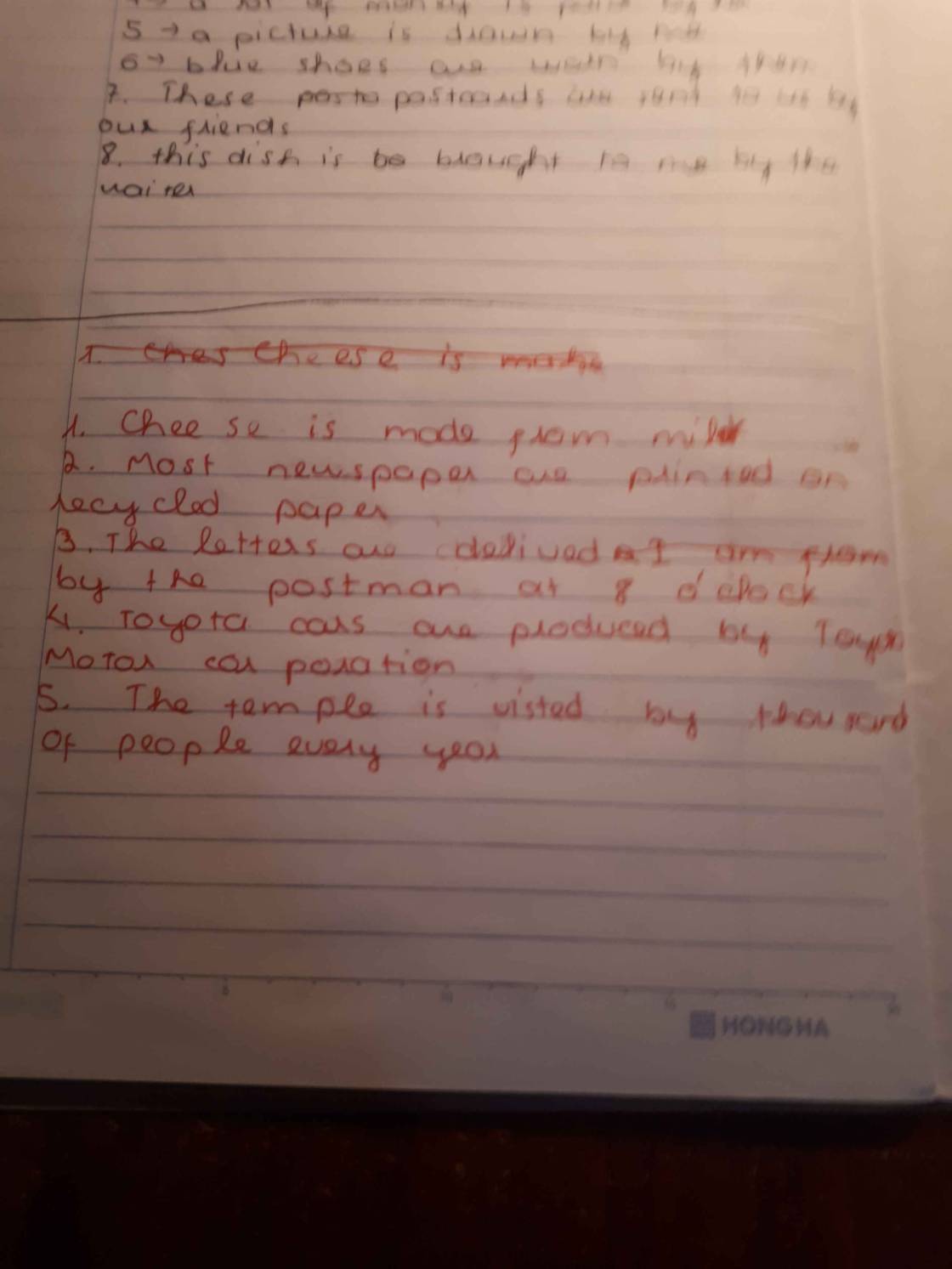Bài 4. Chia động từ trong ngoặc ở thì hiện tại đơn hoặc thì hiện tại tiếp diễn.
1. John (not read)………… isn’t reading……………..a book now.
2. My students (be not) ………………………..hard working.
3. I (be) ………………………..at school at the weekend.
4. What you (do) ………………………..tonight?
5. Jack and Peter (work) ………………………..late today.
6. Silvia (not listen) ………………………..to music at the moment.
7. Maria (sit) ………………………..next to Paul right now.
8. How many other students……………………..you (study) ………………………with today?
9. She (live) ………………………..in a house?
10. He always (make) ………………………..noisy at night.
11. I usually (have) ………………………..breakfast at 7.00.
12. Where your husband (be) ………………………..?
13. She (wear) ………………………..earrings today.
14. He (have) ………………………..a new haircut today.
15. She (not study) ………………………..on Friday.
16. The weather (get) ………………………..cold this season.
17. My children (be)…………………….upstairs now. They (play)………………….games.
18. Look! The bus (come) ………………………..


1. does bean read comics?
2. is anna from australia?
3. does the film start at 7pm
4. when does the train arrive at railway station?
5. what time does this proram end?
6. when does yhe new school year start?
7. does the sun rise in the east?
3. 7 o'clock